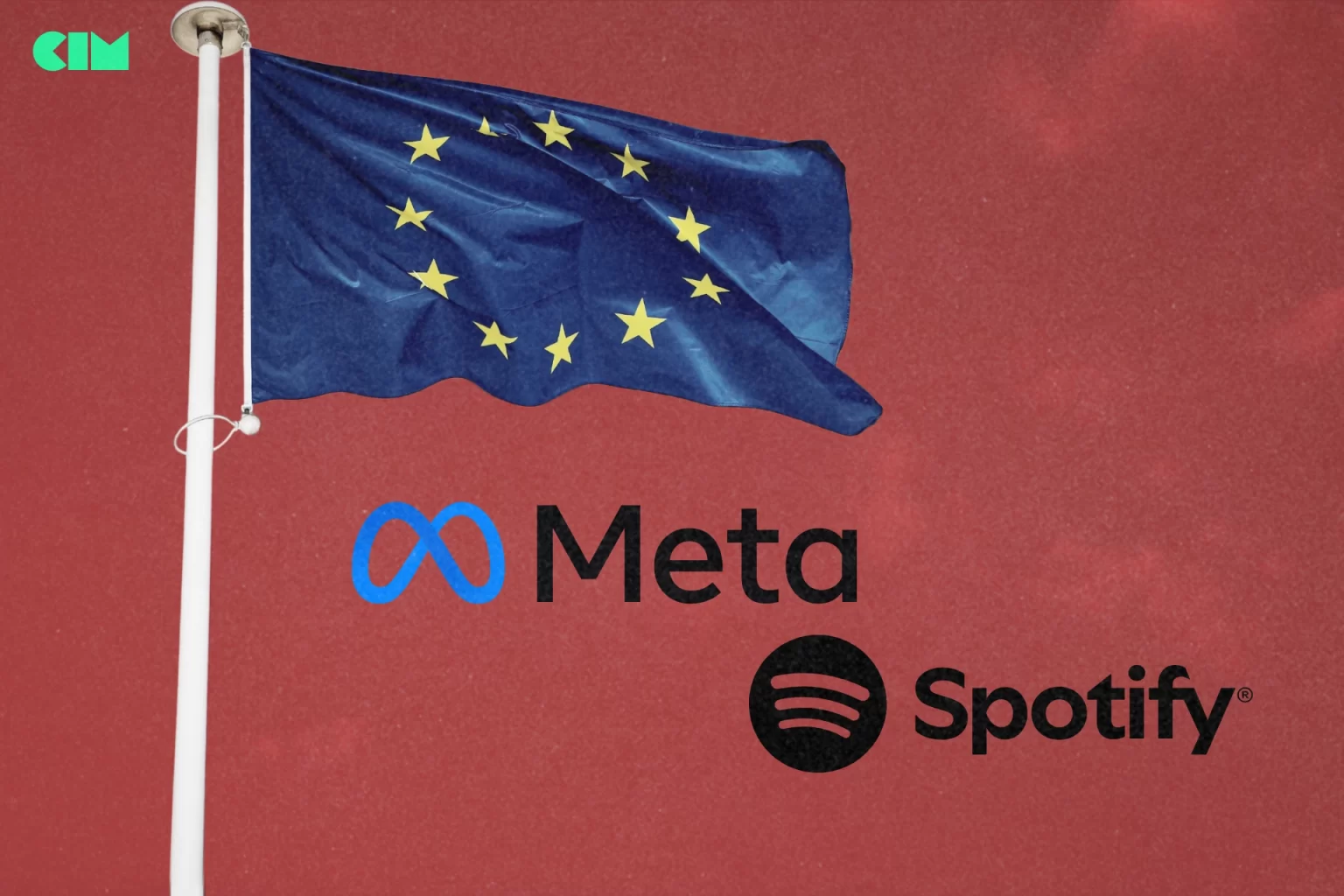Now Reading: Tech Giants Meta and Spotify Challenge EU’s AI Regulations
-
01
Tech Giants Meta and Spotify Challenge EU’s AI Regulations

Tech Giants Meta and Spotify Challenge EU’s AI Regulations
QUICK BITE
- Meta and Spotify join forces to challenge EU’s AI regulations, claiming they stifle innovation and global competitiveness.
- Spotify CEO warns strict rules could impede open-source AI progress, crucial for personalized streaming and creative industries.
- Meta delays new AI model releases in Europe due to unclear data handling laws, highlighting regulatory impact on tech development.
Meta and Spotify, two major tech companies, have teamed up to express their concerns about strict artificial intelligence (AI) regulations in the European Union.
On Friday, Meta CEO Mark Zuckerberg and Spotify CEO Daniel Ek issued joint statements criticizing the EU’s approach to regulating AI, particularly open-source development. They believe the current rules are stifling innovation and hindering European companies’ ability to compete globally, especially due to stringent privacy laws around public data use.
Spotify, known for using AI to personalize music streaming, shares Meta’s worries. CEO Daniel Ek emphasized that AI is key to Spotify’s success in delivering a tailored user experience. However, he is concerned that EU regulations could hinder the progress of open-source AI, which is vital for the future of the streaming industry and creative sectors.
Meta, Facebook and Instagram’s parent company, has raised concerns about EU regulations, stating that it can’t train its AI models using public data from its users due to unclear data handling laws. This, Meta argues, hinders AI development in Europe compared to other regions where such data is more accessible. As a result, Meta is delaying the release of new AI models, including the upcoming Llama multimodel, until the regulatory situation is clarified.
“Regulating against known harms is necessary, but pre-emptive regulation of theoretical harms for nascent technologies such as open-source AI will stifle innovation. Europe’s risk-averse, complex regulation could prevent it from capitalising on the big bets that can translate into big rewards.”
– Reads the joint announcement
In June, Meta faced 11 objections from the group None of Your Business (NYOB), which claimed that Meta’s planned changes to AI data usage might violate EU data protection rules by not securing user consent. Similarly, in July 2023, Google was sued for allegedly using extensive data, including copyrighted materials, in its AI development under its updated privacy policy.
Earlier this year, Prince Constantijn of the Netherlands expressed concern that Europe’s focus on regulating AI might cause it to fall behind the US and China in AI development. Speaking at the Money 20/20 fintech conference, he pointed out that Europe has a history of prioritizing regulation, as seen with GDPR in the data space, and now it’s doing the same with AI.
While he acknowledged the importance of having guidelines, he warned that excessive regulation in a rapidly evolving field like AI could hinder innovation. He cited the example of genetically modified organisms, where strict European regulations led to the region becoming consumers rather than producers, losing influence in the market. Constantijn also mentioned that heavy restrictions on data are making it difficult for Europe to innovate in AI.
Moreover, both the tech giants have stated that Europe should streamline and standardize regulations to take advantage of its diverse market. Currently, European tech leaders, unicorns, and startups lag behind those in America and Asia. To foster great companies and retain top talent, many of whom move abroad, Europe needs clearer policies and consistent enforcement. With a better regulatory framework and its top AI talent, the EU could lead the next wave of tech innovation.







